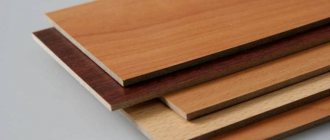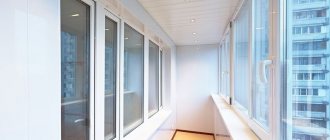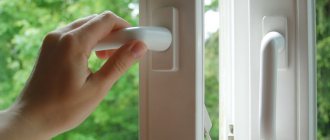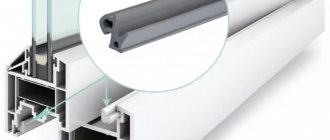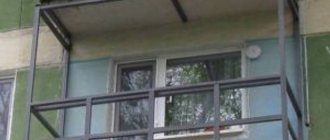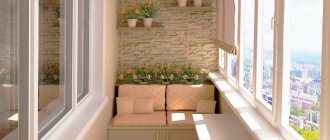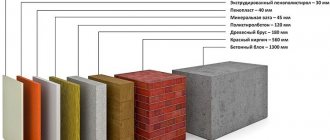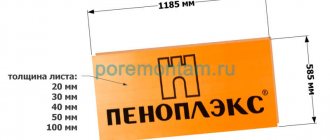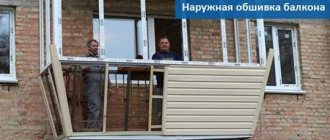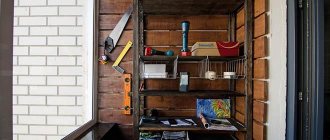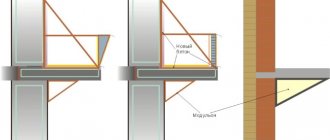Since finishing balconies is one of my areas of activity, I thought, why not use these PVC panels for interior decoration.
I sat, thought and went to the market to look, touch the panels, and talk with sellers about the interest of the population.
Wall panels are the optimal solution in cases where the main goal is a minimum of cost and effort.
They are easy to install, and the choice of colors and textures is incredibly huge, both from natural and artificial raw materials.
Today, wall panels have gained considerable popularity and success among consumers, despite the fact that they appeared on our market relatively recently.
What types of wall panels are there?
Slatted panels
These are planks with a length of 2400 - 3700 and a width of 125 - 300 mm, the thickness of which is from 8 to 12 mm.
They are most in demand in cases of covering rooms with a small area. To install them, you will need a lathing made of wood or metal.
The panels are connected due to the presence of a groove and a tenon (or there are only grooves and tabs that connect the two panels, in which case a gap is formed).
The panel is fixed to the sheathing using staples or a self-tapping screw (into the groove). Chipboard, fibreboard, PVC and MDF are used for the manufacture of slatted typesetting panels.
Tiled panels
square in shape, the size of which is usually from 30 x 30 to 98 x 98 cm, by the way, very convenient for laying out various designs, combining all kinds of shades, as well as texture.
Fastening to the wall is usually carried out using glue or clamps, and they are connected to each other only using grooves and inserts into them. Chipboard, fibreboard, PVC and MDF are also used as materials for the manufacture of tiled panels.
Sheet wall panels
They greatly facilitate the work of finishing walls due to their large sizes - from 1.22 to 2.44 m, with a thickness of 3 to 6 mm.
The surface of such panels is a multilayer structure with imitation stone, wood or tile.
Installation is done using glue, and the seams are hidden using moldings. For the manufacture of sheet wall panels, fiberboard impregnated with resins is used.
In addition to the existing three main decorative types of wall panels, there are also structural ones for the construction of internal walls and various partitions.
These include both concrete panels and sandwich panels for modular houses, which are ready-made walls with insulation, as well as moisture and vapor barrier inside. Sandwich panels are used mainly for dachas and country houses.
More on the topic: Lining the inside of the balcony with wooden clapboard
Installation of wooden sheathing
The condition of the laid surface largely depends on the lathing. Before installation, the direction of laying the panels is selected. Without any doubt, horizontal panels visually increase the width of the balcony, but vertical panels increase its height.
The peculiarity of the installation of the sheathing is as follows: for horizontal panels the planks are attached vertically, and for vertical panels they are attached horizontally.
Experts believe that the most convenient installation is when the walls are sheathed vertically and the ceiling is across the balcony.
The wooden sheathing is installed in the following order:
- ceiling and walls are marked;
- the slats are cut to size and mounting holes are drilled into them;
- level, starting from the corners, slats are attached to the walls and ceiling in increments of 50 cm. The first rail is installed at a height of 30 mm from the floor. You definitely need slats around the perimeter of the door and window openings. It is recommended to fasten with dowels;
- Sometimes prepared insulation is placed inside the sheathing.
Materials from which wall panels are made
Natural wood panels
Most often made of oak, cedar, maple or alder wood. Ideal for residential premises, primarily due to their environmental friendliness.
If you install them in rooms with high humidity (bathroom or kitchen), in this case you should choose panels with a wax coating that repels water and dirt.
Chipboard panels (chipboard)
The manufacturing process is based on the method of hot pressing of shavings and sawdust, similar to wood, but less durable, because are subject to changes in temperature and humidity levels, and therefore are suitable only for finishing dry rooms.
Fiberboard panels (fibreboards)
Also made by hot pressing, but using wood and other plant fibers, they are less susceptible to moisture, environmentally friendly, however, not recommended for rooms where there is direct contact with water.
MDF panels
This is a new material based on MDF boards created by dry pressing (fine wood chips are pressed) at high temperature and pressure.
During the heating process, lignin is released from wood, which serves as a binding element.
The material can withstand sufficient loads (hanging cabinets and shelves), and is also resistant to high humidity, has heat and sound insulation, is hygienic, durable, in other words, it is of sufficient quality. Moreover, there are even fireproof MDF.
Glass panels
They are intended for creating photographic drawings that require a durable base, and therefore have a number of disadvantages.
But with careful use they can last quite a long time, especially since manufacturers are interested in using modern technologies, which has a positive effect on the strength and protection of the glass surface.
Gypsum vinyl panels
The material into which today the well-known plasterboard has grown, used to create walls, partitions and even ceilings.
The new material is the same plasterboard with the only difference that instead of cardboard it is covered with vinyl, which compares favorably with its predecessor. The panels are equipped with a finished working surface with a specific pattern, and they are also quite durable and reliable.
3D panels
A new design solution that helps you create your own individual style.
Made from fashion panels and bamboo, a material that represents a new decorative range of sculptural textured panels, painted in different tones using acrylic paints (glossy or matte finish).
The panels can create a stunning effect and turn the interior of a room into a spectacular space.
PVC panels
Plastic wall panels are also a recent material made from rigid polyvinyl chloride with a minimal amount of softener.
The panels can be safely used in almost any room, even in showers, because... they have a number of significant advantages: waterproof, fireproof, hygienic, with a long service life.
Plastic panels are the most popular variety among their “classmates”. This comes with a number of benefits. Let's take a closer look.
Sheathing with MDF boards
Interestingly, MDF panels were created by accident. They were first received by inventor William Mason due to his own forgetfulness and a malfunction of the steam press. The abbreviation stands for simply: medium translated from English - “average”, density - “density”, fiberboard - “slab”.
The panels have good resistance to high humidity conditions. When compared with a similar chipboard board, MDF is smoother, stronger and more durable due to the use of surface lamination technology. In the manufacture of panels, emphasis is placed on the characteristics of resistance to water, fire and biological factors.
For many years, “jack of all trades” have chosen MDF for interior decoration because of the best price-quality ratio. You can find very inexpensive types in stores.
You can sheathe MDF boards indoors using the same technology as when using lining. It is necessary to create wooden guides that will hide uneven walls, as well as lay materials for thermal insulation. For installation it is worth purchasing special brackets.
Advantages of the material
MDF panels are characterized by increased moisture resistance. They can be washed using soap solutions. The material is also as durable as solid wood. It has low thermal conductivity and is frost-resistant. Fungus and insects do not damage its surface.
MDF can be installed without any special preparation. The high density of the material provides a variety of created relief. In addition, they are significantly cheaper than vinyl and wood lining.
Properties of plastic panels
Environmental friendliness .
It is worth noting that polyvinyl chloride is used for the production of food packaging, pipes, and medical equipment. According to the rules of the SES, finishing PVC panels are recommended for schools, sports and medical institutions.
Fire resistance. It turns out that the combustion temperature is +370 degrees, while panels made of fiberboard and chipboard light up at +250 degrees.
But that’s not all: as experiments show, PVC panels emit 2 times less smoke when burning than panels made of chipboard and fiberboard. And when tested for toxicity, it turned out that the combustion products of chipboard and fiberboard are one and a half times more toxic than their “classmate”.
Also, do not forget that finishing panels belong to the category of self-extinguishing materials.
Moisture resistance. Wall panels, thanks to their flat surface, do not retain moisture at all, and the absence of pores means that germs and mold cannot grow on the wall surface. That is why the material is often used in the bathroom and kitchen.
Easy to install. It's no secret that installing panels is not difficult; even a not very experienced craftsman can handle it. The material does not require any preparatory work or surface leveling. Moreover, the damaged part of the structure is easily replaced.
Decorative abilities. Plastic panels have a wide selection of colors and shapes. There are options with a pattern applied to the surface using thermal film. The material can decorate any surface, making it considered the most popular finishing option.
More on the topic Decorative plaster for interior wall decoration
Creating a floor
Installation of floor boards.
The insulation layer is covered with foam boards.
Coating floor boards with stain.
Size of plastic panels
The thickness can be divided into two subtypes - 5 mm and 8,9,10 mm. The second subtype (size 8-10 mm) includes moldings of the same size.
- Lining. The length is 3 m, the width is 10 cm and the rarer one is 12.5 cm (has a double profile). The most popular are “European” with a wide lock and another less popular option with a narrow lock is “polka”. Produced mainly in white, less often found in color.
- Panel. The most popular lengths of plastic panels are 260, 270 and 300 cm; the width can be 15 - 50 cm, but the most common size is 25 cm. The panel can be painted, varnished or covered with thermal film. An almost invisible seam when assembled is the main difference between the panel and the lining.
- Sheet. PVC sheets can also be called PVC plates. The sheet width can be 80-203 cm, length - from 150 to 405 cm. The most popular sheets are made of foamed PVC, while the top layer of the panel can be impact-resistant and smooth.
Criterias of choice
Selecting plastic panels is a rather complex process, during which you must be guided by certain rules and criteria. There are a few important things to consider before making your final decision.
Cost and quality
The affordable cost of the material is one of the key values when choosing. However, it must be taken into account that high-quality products cannot be sold at a reduced price. The cost of plastic products can be influenced by various factors, but the most important thing is that in order to save money, you should not purchase the cheapest products. A smart decision would be to purchase certified material from a trusted manufacturer.
Elasticity and stiffeners
The strength of plastic can be determined not only by the thickness of its walls, but also by the number of stiffeners located on the inside of the product: the more there are, the more reliable and durable the material.
You can try pressing lightly with your thumb on the front side of the panel. If a dent immediately forms, then you should refuse the purchase, since this material is unlikely to last long. High-quality plastic products must be sufficiently hard and elastic, their durability and service life depend on this.
Front side and color
When choosing, special attention is paid to the appearance of the front side. If, when examining the product from a slight angle, clearly visible stiffening ribs are visible, this indicates that the panels are most likely not of very high quality.
Good material should be evenly colored without sharp color transitions. If the plastic has a clearly visible grayish tint or blurry dark spots, this indicates that the product is made from low-quality recycled materials.
Dimensions
When choosing PVC panels, you must take into account the size of the product you are purchasing. Depending on the variety, the dimensions of plastic products in width can vary from 10 cm to 2.3 m. The length ranges from 1.5 to 6 m. To decorate a standard loggia, it is necessary to purchase models with a width of about 25 cm.
Advantages of using wall panels
Using wall panels as a finishing material, you can avoid such preparatory issues as leveling the walls, as well as removing old plaster, wallpaper and paint, i.e.
pre-finishing of walls. In addition, installation does not require special tools or equipment, nor does it require special qualifications of the technician.
All you need for this is a stapler, nails, blocks of wood and the panels themselves.
Among other things, wall panels will provide excellent sound and heat insulation in the room and masking of computer, telephone and other electrical cables.
They do not need special care either; all that is required is to wipe them once a month with any detergent or just a damp cloth.
And if necessary, damaged elements are easily replaced. But usually wall panels have a long service life, they are durable, hygienic and resistant to mechanical stress - all this will eliminate the need for annual cosmetic repairs.
Source: remontbp.com/vse-ob-otdelke/menu-steni-otdelka/pvh_paneli/
Installation work
First, check if the ceiling is leaking. If you find even a minor leak, it must be eliminated before installing the insulation and finishing, since dampness causes the formation of fungus, which not only causes an unpleasant odor and is harmful to health, but, in addition, gradually destroys building materials. As we understand, this cannot be allowed.
Typically, ceiling insulation is performed using polystyrene foam, mineral wool, penoplex and expanded polystyrene. For more information about these insulation materials and how to use them, read the corresponding article: “How to insulate a ceiling on a balcony.”
- we determine the level at which the ceiling finishing will be located and apply markings;
- According to the applied markings we mount the fastening element. By the way, for these purposes there is a special plinth with a groove for inserting finishing elements, which is quite convenient;
- We fix the beam/profile on the ceiling itself. It should be secured using hanging fasteners and dowels/screws. Naturally, all frame elements must be in the same plane. To achieve this result, use a thread stretched from corner to corner. Of course, you can’t do without a building level here;
Everything is simple here: we insert the PVC panels into the grooves one by one, fasten them to the frame with a construction stapler, and in this way cover the entire ceiling area. The last plank may need to be cut to length. Just in case, we note that it is necessary to hammer the staples with a construction stapler only into the upper part of the groove.
The last stage of the work is the installation of a decorative plinth between the wall and the ceiling, which we have already mentioned in the text.
Finishing the balcony with plastic lining (PVC panels)
When choosing a material for finishing a particular room, it is necessary to take into account not only their aesthetic, but also their practical properties.
So, for the bathroom you should select finishing materials that are resistant to moisture, and the kitchen lining should be easy to clean.
At the same time, the living room is not so demanding, and here you can give room for imagination.
Balcony decoration has its own, special place - here it is necessary to take into account a whole range of different requirements. Thus, finishing materials must be resistant to low temperatures, which is especially important for balconies with cold glazing.
In addition, they should not deteriorate when exposed to moisture, otherwise a heavy rainfall can have a detrimental effect on the finish. In addition, if the balcony is not part of a monolithic terrace, the finishing materials should be light in weight, otherwise there is a high risk of the entire structure becoming distorted over time.
And, of course, any owner wants the decoration of the balcony to be not only practical and durable, but also beautiful.
Finding a building material that meets such a wide range of requirements, at first glance, seems impossible. However, today there is a wonderful solution - finishing the balcony with plastic lining.
This option satisfies all the specified requirements, in addition, having a number of additional advantages.
https://www.youtube.com/watch?v=4CQEkS-S0Pg
Finishing the balcony with plastic lining
Plastic panels for finishing balconies are made of polyvinyl chloride, that is, from the same material from which modern window profiles are made.
It is not difficult to guess that they have identical protective properties and are able to withstand the effects of the external environment.
Advantages of PVC lining
Finishing the balcony with plastic lining is extremely resistant to moisture.
PVC panels can be safely installed even on an open balcony - they are not afraid of either rain or snow. In addition, this material perfectly withstands the effects of both low and high temperatures: cracking or deformation during the cold period or during the summer heat is completely excluded.
PVC balcony finishing also has phenomenal durability. The fact is that polyvinyl chloride is a very inert material from a chemical point of view.
It does not decompose or oxidize under the influence of detergents, fungus cannot grow on it, and rust cannot damage it. Thanks to this, finishing the balcony with plastic lining will delight you for many years without needing replacement.
Drywall
Using drywall is also considered a budget option. To install it on a balcony, it is recommended to use moisture-resistant gypsum board, which is painted green. The technology for installing such a ceiling is as follows:
- The lighting is pre-wired.
- Next, the sheathing is installed under the drywall. For this you can use both wooden slats and a metal profile.
- First of all, the UD profile is attached to the wall along the entire perimeter of the ceiling. But before that, you need to set it strictly according to the level.
- The CD cross members can then be attached. They are inserted into the UD profile. The pitch of the transverse profile can vary from 400 to 600 mm.
- The sheathing is mounted so that afterwards it is possible to install lighting fixtures without hindrance.
- If the width of the ceiling is small, then it is not necessary to attach additional hangers. But for greater strength, it is better to install hangers in the middle of the transverse CD profile.
- Now it's time to attach the drywall. To do this, cut off pieces of sheet such that the joint is necessarily on the transverse profile.
- Drywall is fastened with 40 mm self-tapping screws. The screw head should be slightly recessed into the drywall. In order not to break through the gypsum board with a self-tapping screw, it is recommended to use a special cue ball that has a limiter on the depth of penetration of the head.
- Each drywall joint is treated with reinforcing mesh and puttied.
- If desired, the drywall can be completely puttied. After which the ceiling is sanded, primed and painted.
- Now the ceiling plinth is glued around the entire perimeter.
